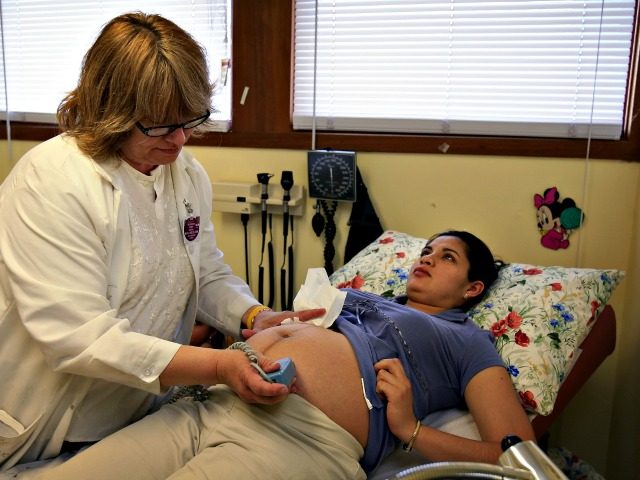Gov. Mike DeWine (R-OH) signed a budget bill last week that includes a conscience protection clause for healthcare providers to ensure they are not forced to perform procedures that violate their faith.
Page 1,454 of the budget bill states:
… a medical practitioner, health care institution, or health care payer has the freedom to decline to perform, participate in, or pay for any health care service which violates the practitioner’s, institution’s, or payer’s conscience as informed by the moral, ethical, or religious beliefs or principles held by the practitioner, institution, or payer. Exercise of the right of conscience is limited to conscience-based objections to a particular health care service.
The bill adds:
Whenever a situation arises in which a requested course of treatment includes a particular health care service that conflicts with the moral, ethical, or religious beliefs or convictions of a medical practitioner, the medical practitioner shall be excused from participating.
DeWine said in a statement the inclusion of the conscience protections provision in the budget “simply puts in statute what the practice has been anyways,” reported the Journal-News.
“Let’s say the doctor is against abortion, the doctor is not doing abortion,” the governor said. “If there’s other things that maybe a doctor has a conscience problem with, it gets worked out, somebody else does those things.”
The American Civil Liberties Union (ACLU) Ohio chapter tweeted the conscience protection provision is an affront to LGBTQ Ohioans.
“[W]hat about the rights of LGBTQ Ohioans?” the organization asked. “Don’t they have a right to fair health care? Don’t they have the right to the same treatment that straight/cis Ohioans receive?”
.@GovMikeDeWine said he respects medical providers’ rights to decide whom to treat. But what about the rights of LGBTQ Ohioans? Don’t they have a right to fair health care? Don’t they have the right to the same treatment that straight/cis Ohioans receive?https://t.co/2lCPrYjeOh
— ACLU of Ohio (@acluohio) July 7, 2021
Dr. Todd Kepler, a medical director at Equitas Health, which serves LGBTQ patients, said the “widely broad” language in the new rule will create further barriers to health care for marginalized groups.
The Journal-News reported:
“Say I happen to be a gay patient and I wanted to see a provider in my town,” [Kepler] said. “And there weren’t really any other providers in town. But they find that morally unacceptable, they could turn me away, and the language is so broad that that could even be done at an institutional level. So, if you have a hospital that perhaps has an affiliation with a religious institution. And again, that happens to be the only institution in town, theoretically they could turn that patient away for health care.”
However, State Sen. Steve Huffman (R), a physician from Tipp City, said he backs the new rule:
In my career as a doctor, I have consistently and wholeheartedly prioritized my patients, and I do everything in my power to improve their overall health and wellness in a way that best fits their needs. However, when a patient requests elective services, like abortion, that could infringe on a doctor’s personal religious, moral, or ethical code, it is simply time they find a new provider. I fully support the language in this budget that protects all medical professionals by ensuring they are not obligated to perform or pay for procedures that conflict with their conscience.
Justin Cole, chair of pharmacy practice at Cedarville University, emphasized the clause allows doctors to exercise their religious freedom or conscience objection for a specific service, not to entirely reject treating a person.
“Americans are afforded the freedom to live according to deeply held ethical, moral and religious beliefs,” Cole said. “This necessarily includes doctors, nurses, and other clinicians … Without these provisions, medical providers could be forced to participate in procedures or treatments that conflict with their own convictions and may be felt to be harmful to the patient.”

COMMENTS
Please let us know if you're having issues with commenting.